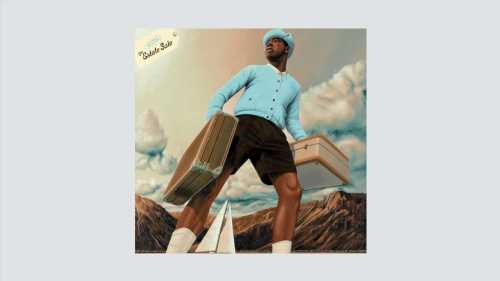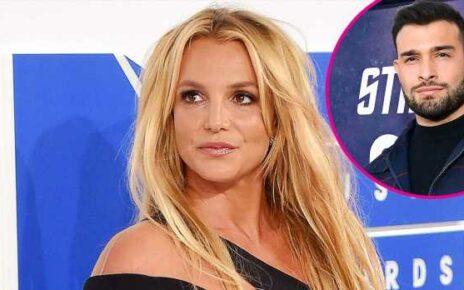If “Call Me If You Get Lost” was Tyler, the Creator’s Tour de France, then “The Estate Sale” must be his victory lap. Deluxe albums have become commonplace within hip-hop since Lil Uzi Vert’s release of “Eternal Atake (Deluxe) – LUV vs. The World 2” in 2020. Many artists have followed suit, tacking a few B-sides onto the beginning of the album so that you unintentionally listen to the whole project. “The Estate Sale,” on the other hand, uses its eight new tracks to to complement the existing themes on Tyler Baudelaire’s last project as he journeys across the globe with his ivory Golf le Fleur* travel trunk.
Picking up right where the original album left off, “The Estate Sale” begins with a short interlude from DJ Drama and Tyler, the Creator reflecting on the successes of “CMIYGL,” from the sold-out tour to his second Grammy award for best rap album. Accompanied by the same palette of bells and orchestral swells that brushed “CMIYGL’s” outro, “Safari,” Tyler thanks his fans for their unwavering support on “Everything Must Go” before abruptly sounding the alarms that launch the deluxe into motion.
Instead of reverting back to Detroit’s precarious 808 thumps and the trumpet fanfare of “Lemonhead” with 42 Dugg, “Stuntman” calls back to Tyler’s home on the west coast. He collaborates with Long Beach’s Vince Staples to hone in on the rambunctiousness that once tagged their personas. Very much similar to the No I.D.-produced “Hang N’ Bang,” featured on Vince’s project “Summertime ‘06,” the track reminds listeners of Odd Future’s orchestrated chaos. The pair flex over the off-beat patter of a drum kit’s ride cymbal and the buss of a single-note bass line, flexing everything from a recent film cameo in “Jackass Forever” to the wheelies Tyler can pop on his Vespa.
“Boyfriend, Girlfriend (2020 Demo)” is no different, reconnecting with yet another west coast giant. Attempting a queer-friendly, house party anthem, Tyler offers a joint effort with YG that’s presumably an alternative to “Juggernaut,” as the two set their eyes on their respective love/lust interests, laying the foundations for the relationship that develops on “Wilshire.” Similarly, “Wharf Talk” with A$AP Rocky is an extension of Tyler’s “Sweet/I Thought You Wanted to Dance,” as he revives his imperfect alto while cruising on his yacht — an interchangeable vessel to the airplane that’s presented on the album’s primary cut.
Where “Lumberjack” paid homage to the tooth-and-nail grit of the ‘90s, “What a Day” is a ‘00s-era sigh of relief. The downtempo soul loop is provided courtesy of Madlib, the underground hip-hop legend known for his collaborations with MF Doom, Freddie Gibbs and, now, Mr. Baudelaire himself. When Tyler debuted “CMIYGL,” he claimed: “I think a lot of people forgot that I’m a rapper because I’m so multifaceted. I just had to remind everyone, ‘Don’t let the wig get it twisted, y’all n****s can’t fuck with me.’” The song’s exclusion on the album’s first iteration makes sense, since every song on the original was produced by Tyler, but as the song takes flight with Urszula Dudziak’s dreamy vocals, the album redefines itself as Tyler’s personal magnum opus — a tribute to hip-hop and the legends that defined his love of the genre.
With an even deeper sense of gratitude than “Rise!,” “Heaven Only Knows” boils down the original purpose of “CMIYGL” to a single daydream. Tyler idealizes his future as he samples the Ye-produced track “Heaven to Me.” His second verse breaks down the life he dreams of having, romanticizing being in his “40s looking 20-something” with two kids. He preaches good health with a grin that’s not seen, but rather felt as he begins goofily screaming gibberish after a sentimental third verse, reminiscing about what life was like before the release of “Bastard.”
Dropping back to reality, “Dogtooth” is a controlled return to Tyler’s id, following his libido after the intense breakup that takes place during “Wilshire.” With the title alluding to a Greek arthouse film (in the spirit of Tyler’s love of international cinema), the lyrics are heartfelt yet graphic depictions of sexual infatuation: “She could ride my face / I don’t want nothing in return.” In an irreverent return to form, Tyler flaunts his promiscuity to solidify his position as the richest bottom-feeder in music.
“The Estate Sale” ends with “Sorry Not Sorry,” an appropriate closing to the “CMIYGL” era. The outro is a humble acknowledgement of Tyler’s own humanity, a reminder that he’s “not Superman.” Just like his politically-charged “Manifesto,” Tyler is still coming to terms with the scrutiny he faces as a sexually liberated Black man, balancing political correctness, self-indulgence and his platform as an artist.
The music video depicts Tyler face-to-face with a theater full of his peers, watching his discography play out in real time. He apologizes to his mother for the heresy she had to witness during his Odd Future days. He apologizes to his friends and family for withholding the truth about his sexuality. He apologizes to his ancestors for not being politically active enough. But he refuses to apologize for his success. After years of cognitive dissonance, Tyler, the Creator has finally killed his ego and, perhaps, finally found happiness.
Read More About:
Source: Read Full Article



